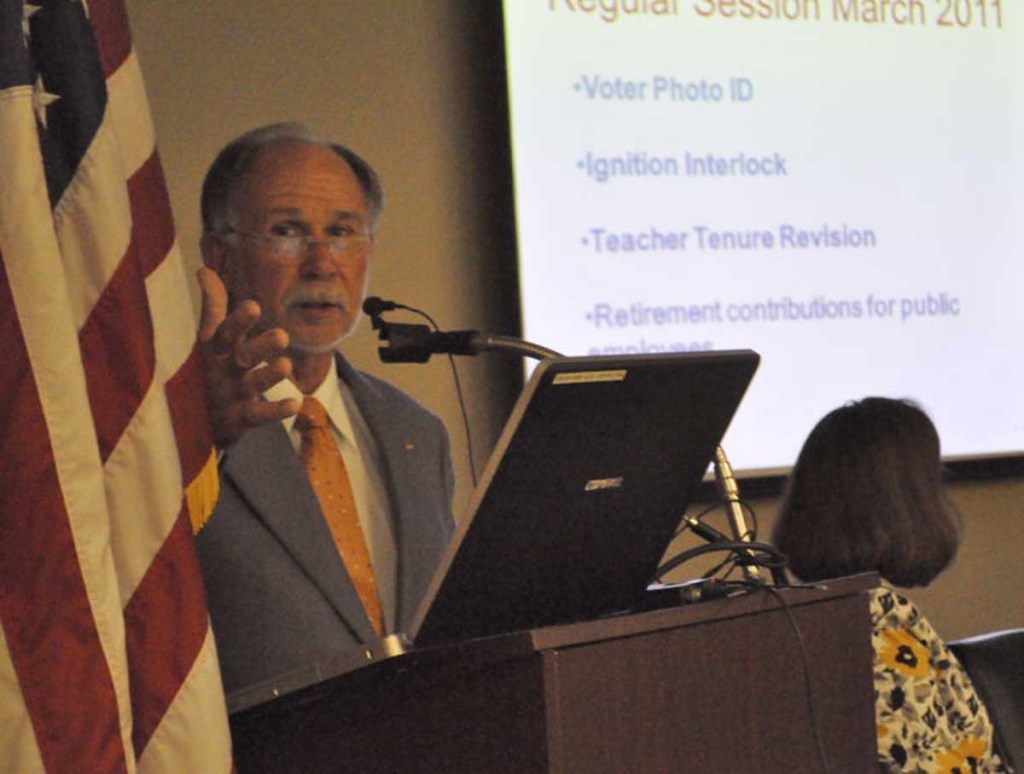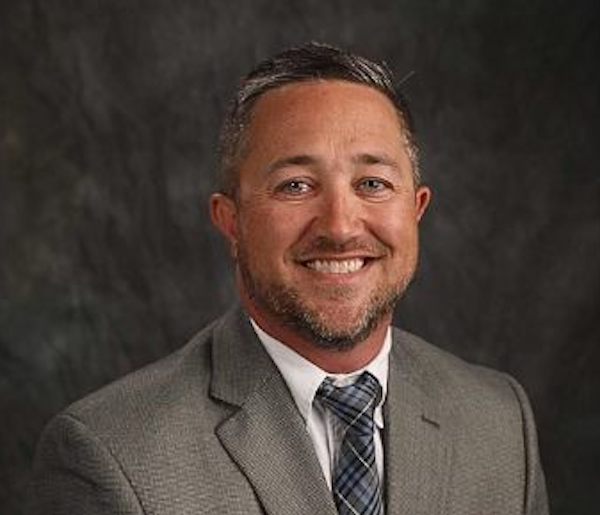Rep. McClendon shares thoughts in Moody
Published 4:00 am Monday, September 26, 2011

- Rep. Jim McClendon, R-Springville, addresses the Moody Area Chamber of Commerce to give members a legislative update.
With the legislative session in the history books, Rep. Jim McClendon, R-Springville, stopped at the Moody Area Chamber of Commerce meeting earlier this month to discuss important legislation that has passed this year. While speculating on what next year’s session could bring, McClendon also highlighted the achievements of what he referred to as two landmark legislative sessions that have taken place during 2011.
The year began with the five-day ethics special session in January, which served as former Gov. Bob Riley’s swansong before leaving office.
“He wanted to leave an indelible mark on the state,” McClendon said. “I’ve never seen him so involved.”
All five landmark ethics bills were passed over five days, due in large part to the new Republican majority in the Alabama House and Senate.
“Across Alabama, the sentiment was that they wanted a change. I think people were fed up,” McClendon said of the state’s political climate during the November elections, which led to a Republican supermajority in the house.
McClendon said the special session responded to the “resounding voice out there to change things,” by passing limits on lobbyist spending on foods, gifts or travel for legislators, banning PAC-to-PAC transfers, state collection of union dues such as for the AEA and giving the ethics commission subpoena power, implementing a searchable donation database and eliminating pass-through pork.
When the regular session began in March, the Republican government continued to push through bills of interest to their constituents.
With financial concerns on the minds of those at all levels of government, the state of Alabama was proactive in trying to help school districts budget better for their fiscal futures.
The Responsible Budgeting and Spending Act was put in place to avoid budgetary issues, with proration in particular in the crosshairs.
“For the last 30 years, we have gone into proration every third year,” McClendon said.
The problem lies within the budgeting process, he explained — the budget forecasts are based largely on guesses, then legislators spend more than the forecasts to keep the public happy, leading to revenue shortfalls that lead to proration and other budgetary issues.
The Responsible Budgeting and Spending Act bases revenue forecasts on 15 years of historical data, instead of projecting into the future.
“With that program in place, we wouldn’t have had proration once,” McClendon said. “If there’s excess money collected, it goes into a pot for the lean years.”
He also defended the work done on the illegal immigration bill, noting the concept as a work in progress.
“We knew there would be lawsuits way ahead of time,” McClendon said. “If you can’t win in the legislature, you try to win in the courts.”
McClendon expects that U.S. District Judge Sharon Blackburn, who temporarily blocked enforcement of the law, will find some areas of the law that will need some working on, but also plenty of the bill that are valid.
McClendon also extolled bills that banned double-dipping, or collecting salaries from both the legislature and the two-year college system, allowing constitutional amendment votes on Forever Wild and the Affordable Healthcare Act, commonly known as Obamacare, implementing voter photo identification, ignition interlocks for DUI offenders, revision of teacher tenure, removal of the DROP teacher incentive program, and redistricting efforts for the state Board of Education and congressional districts.
The only bad news, he said, was with the retirement contributions for those participating in the Retirement Systems of Alabama, which is currently $13 billion in the red.
With the legislative season behind him, McClendon also took a moment to look to the coming legislative session.
McClendon said the only reasons for a special session to be requested by Gov. Robert Bentley would be to handle Jefferson County’s financial woes, should they progress to that point, or to discuss the issue of coastal insurance. Skyrocketing coastal insurance rates, he said, could potentially put beach businesses such as condo and hotel rental agencies out of business, which would cut state revenues from beach tourism.
During the regular session, McClendon anticipated revisions to the illegal immigration bill, discussion on charter schools, teacher merit pay, retirement, sentencing and Medicaid reforms, welfare drug testing, health insurance exchange and abortion issues, though at this point, nothing is certain.



